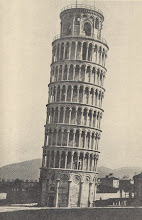Infrared (IR) technology holds promise as the diagnostic technique of choice – the gold standard – for a number of examinations of urological problems. It is perfectly suited for screening programs. It is a technique which is quick, non-invasive and contact free - in other words, patient friendly.
Whilst the technology has been around for many years, there have been limitations as to its practical application. However, over the last few years there have been a number of improvements which should lead to this technology becoming more widespread in the clinical field. The first is a hardware issue. Electronics and camera quality have progressed in leaps and bounds. Equally important is the fact that costs have also fallen. In part this is due to technological and manufacturing advances but equally important is the fact that high quality infrared optics is no longer the exclusive preserve of the military – see http://www.flir.com/thermography/eurasia/en/ for examples of various end users of this technology. Second, significant improvements in software algorithms have increased the rigour of diagnosis, analysis etc.
Let me give you an example if the potential use of IR for urological diagnostics. The Digital Telethermography and Infrared Functional Imaging Laboratory at ITAB (Istituto Tecnologie Avanzate Biomediche), Chieti, Italy has been working on using IR technology to detecting impaired thermoregulatory control in men with asymptomatic varicocele. This is important because varicocele is one of the principal causes of male infertility. IR technology is perfectly suited to be used in a screening program which, for obvious reasons, needs to be directed at young males. It is a pity – and I am talking purely for medical reasons – that there is no longer military service in many democracies. The occasion when medical tests are undertaken on all new recruits would be the best opportunity to perform a screening.
I intend to make additional postings on IR technology. Should anyone be interested in seeing some papers on the detection of varicocele, please contact me.


No comments:
Post a Comment